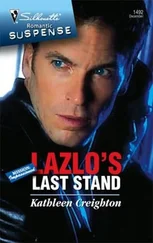“More like a universal hysteria,” said the Major. “It’s hundreds of yards to the edge.”
“Do you not find it even the slightest bit disorienting?” asked Mrs. Ali, surveying the smooth grass running away to the abrupt drop-off. “I can almost feel the earth spinning beneath my feet.”
“That’s the power of it,” said the Major. “Draws people here.” He looked out at the green cliff and the enormous bowl of sky and sea and reached for the appropriate quotation.
“Clean of officious fence or hedge,
Half-wild and wholly tame,
The wise turf cloaks the white cliff-edge
As when the Romans came.”
“I expect Roman women also cried out to their children to be careful,” said Mrs. Ali. “Is that Kipling?”
“It is,” said the Major, pulling a small red volume of poetry from his pocket. “It’s called ‘Sussex’ and I was hoping to share it with you over our tea today.” She had called to cancel their planned reading, explaining that she had volunteered to take little George out for the afternoon. The Major, refusing to be disappointed for a second Sunday, found himself asking if he might come along.
“How amazing it is that we ever planned to read it indoors,” said Mrs. Ali. “It has so much more power out here where it was made.”
“Then perhaps we should walk about after Master George, and I might read you the rest of it?” said the Major.
When the poetry had been read, the kite had been tossed several dozen times into the air, and George had run until his small legs were exhausted, the Major suggested that they get some tea. They settled, with tea and a plate of cakes, at a sheltered table on the terrace of the pub that was absurdly built right on the headland. Mrs. Ali’s cheeks were warm from the walking, but she looked a little drawn. George swallowed a bun almost whole and drank a rather flat glass of lemonade before wandering off to view a puppy being walked nearby.
“My nephew suggested we come here,” said Mrs. Ali. “He says he walks up here all the time after mosque because here he can imagine that Mecca is just over the horizon.”
“I think France might be in the way,” said the Major, squinting at the horizon and trying to imagine the correct bearing for Saudi Arabia. “But on a spiritual level, there is something about the edge of the land that does make one feel closer to God. A sobering sense of one’s own smallness, I think.”
“I was very glad he wanted George to see it,” she said. “I think it is a good sign, don’t you?” The Major thought it might have been a better sign had the young man shown George the place himself, but he did not want to spoil Mrs. Ali’s afternoon.
“I must thank you again for putting up my nephew,” she said. “It has allowed George and Amina to be with us and has allowed Abdul Wahid to get to know his son.”
The Major tested the color of the tea and gave the pot a dissatisfied stir. “I am glad he doesn’t object to Amina being in the shop.”
“A shop is a curious thing,” said Mrs. Ali. “I have always found it to be a tiny free space in a world with many limits.”
“More complicated, then, than just selling eggs and working through the important holidays?”
“A place of compromise,” she added. “It’s very hard to put into words.”
“Compromises are often built on their being unspoken,” said the Major. “I think I understand you perfectly.”
“I could never talk to my nephew about it,” she said. “Yet I will whisper to you that I pin my hopes on the space of the shop allowing Abdul Wahid to see where his real duty lies.”
“You believe he loves her?” asked the Major.
“I know that they were very much in love before,” she said. “I also know that the family has gone to many lengths to separate them.”
“He seems to believe that despite your good offices, your late husband’s family will never accept Amina,” he said as he poured the tea. Mrs. Ali accepted a cup of tea, her fingertips meeting his on the edge of the saucer. The Major felt a skip in his veins that could only be happiness. She seemed anxious at his question and hesitated, drinking some tea and carefully placing her cup back on the tea tray before answering.
“I am afraid that I have been very selfish,” she said.
“I cannot allow you to suggest such a thing,” said the Major.
“It is true,” she said. “I have told Abdul Wahid that I have written to the family-and I have written.” Here she paused again. She wrapped her arms around her chest and gazed out at the vista. She did not look at the Major as she continued. “But each day I have been somehow too busy to post the letter.” She fumbled in a small handbag and withdrew a thin envelope, very creased and folded. Turning to him, she held it out. The Major took it gently from her fingers.
“A letter unposted is a heavy burden,” he said.
“Each day that passes I feel heavier,” she said. “I feel the weight of knowing things cannot go on as they are. But at the same time, each day I feel a lightness I had almost forgotten.” She gazed at George, who was crouched on the grass, talking to the boy with the puppy while the puppy jumped at both their knees.
“How long can you continue to postpone the necessary conversation?”
“I was hoping you might reassure me that I can postpone it forever,” she said. “I am afraid that the letter will undo all.” She turned to him, a wistful smile hovering on her lips.
“My dear Mrs. Ali…”
“I am afraid everything will be taken from me,” she said in a quiet voice. The Major felt a desire to throw the offending letter into the nearby rubbish bin along with the paper plates and sticky ice cream wrappers.
“If only it were possible to ignore them entirely,” he said.
“That will not do,” said Mrs. Ali. “I know my nephew, who has his own doubts to overcome, will not be able to proceed without his father’s blessing.” She took the envelope back and pushed it into her handbag again. “Perhaps we will see a postbox on our way home.”
“I hope your letter will meet with a more friendly reaction than you imagine,” said the Major.
“My faith does permit the occasional miracle,” said Mrs. Ali. “My hope is that they will see they have been unjust. Of course, if that fails to work, I am prepared to bargain on a more temporal level.”
“One really shouldn’t have to bargain with one’s family like a used-car salesman.” The Major sighed. With acknowledged cowardice, he had ignored two phone calls from Marjorie, finally finding a use for the incoming number display on his phone. He felt that he could no more hold off an inevitable confrontation about the guns than frail Mrs. Ali could hope to hold back the fury of her family.
“Someone must stand up for George,” she said. “It is not permitted in Islam to let a child carry the weight of a parent’s shame on his shoulders. He had to witness his grandmother’s funeral shunned by all but a handful of people. It was a great dishonor.”
“Terrible,” said the Major.
“I am afraid my husband’s family may have increased the shame by spreading certain untruths,” said Mrs. Ali. “I know Abdul Wahid understands this, and I believe it will help him decide to put things right.”
“He does seem fond of her and the boy,” said the Major.
“I am glad that you say that,” said Mrs. Ali. “I was hoping you might talk to him for me. I think he needs a man’s perspective on this.”
“It’s not really my place,” began the Major, horrified at the thought of talking about such intimate matters. He would not have been able to broach such a subject with his own son, let alone the stubborn and reticent young man currently using his guest room.
Читать дальше












